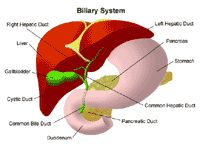Hepatitis B (HBV) in Children
 |
| Click Image to Enlarge |
What is hepatitis B (HBV)?
Hepatitis B is a disease of the liver caused by the hepatitis B virus. Hepatitis B has a wide range of clinical presentations. It can be mild, without symptoms, or it may cause chronic hepatitis. In some cases, when infants and young children acquire hepatitis B, they are at high risk for chronic liver disease and liver failure. Transmission of hepatitis B virus occurs through blood and body fluid exposure such as blood or saliva (although it is not generally transmitted by kissing). Infants may also develop the disease if they are born to a mother who has the virus. Infected children often spread the virus to other children if there is frequent contact (for example, household contact) or a child has many scrapes or cuts. The following describes persons who are at risk for developing hepatitis B:
-
Children born to mothers who have hepatitis B
-
Children who are born to mothers who have immigrated from a country where hepatitis B is widespread such as southeast Asia and China
-
Children who live in long-term care facilities or who are disabled
-
Children who live in households where another member is infected with the virus
-
Children who have a blood clotting disorder such as hemophilia and require blood products
-
Children who require dialysis for kidney failure
People can contract hepatitis B virus infection without knowing how they got it. About one-third of hepatitis B cases in the United States have an unknown source.
Why is hepatitis B a concern?
The younger the person, the greater the likelihood of staying infected with hepatitis B and having life-long liver problems, such as scarring of the liver and liver cancer.
Hepatitis B immunization
A vaccine for Hepatitis B does exist and is now widely used for routine childhood immunization. Children currently receive the first vaccine between birth and two months, the second vaccine at one to four months and the third vaccine at six to 18 months. The vaccine is generally required for all children born on or after January 1, 1992, before they enter school. The vaccine is available for older children who may have not been immunized before 1992 and is recommended before age 11 or 12. Hepatitis B vaccine will prevent this disease. Three doses are needed for full and lasting immunity. Hepatitis B vaccine may be given at the same time as other vaccines.
-
Infants of mothers who have hepatitis should receive both hepatitis B immune globulin and the hepatitis B vaccine in the first 12 hours of birth.
-
Infants of hepatitis B-negative mothers can receive the first dose from birth to two months of age.
-
The second dose must be given at least one month after the first dose.
-
The third dose must be given at least two months after the second dose and at least four months after the first. The third dose should not be given to infants younger than six months of age.
-
Catch-up immunization may occur between seven to 18 years of age.
What are the risks from hepatitis B vaccine?
A vaccine, like any medication, is capable of causing serious problems, such as severe allergic reactions. The risk of hepatitis B vaccine causing serious harm, or death, is extremely small. Persons who have a life-threatening allergy to baker's yeast should not receive the hepatitis B vaccine.
Receiving hepatitis B vaccine is much safer than contracting hepatitis B disease. Most people who receive hepatitis B vaccine do not have any problems with it. Risks may include:
-
Soreness in the location where the shot was given, lasting a day or two
-
Fever
-
Serious allergic reaction (very rare)
How do I care for my child after immunization with hepatitis B vaccine?
-
Give your child an aspirin-free pain reliever, as directed by your child's doctor.
-
Watch for signs of reaction such as high fever, difficulty breathing, behavior change, fast heart rate, or dizziness. Report these or any other unusual signs immediately to your child's doctor.